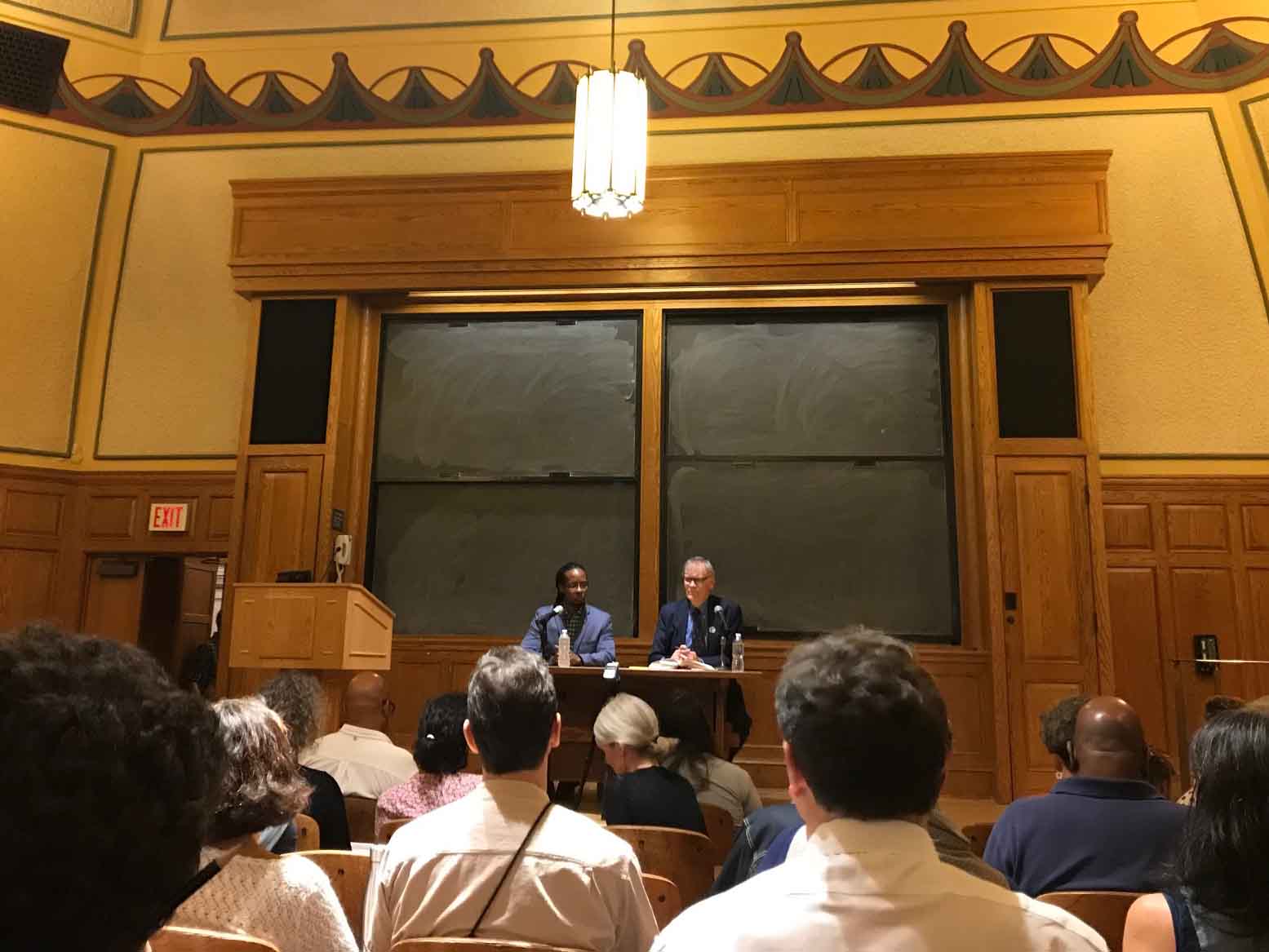
In lecture room 102 in Linsly-Chittenden Hall, bronze reliefs of famous white intellectuals — Dante, Plato, Newton and Shakespeare — line the walls.
But Wednesday, the room, where Yale’s English students often read the works of the Western Canon, was filled with 150 attendees to discuss the legacy of racism in America.
At an event hosted by the Gilder Lehrman Center for the Study of Slavery, Resistance and Abolition, Ibram Kendi, a professor and the director of the Anti-Racist Research and Policy Center at American University, discussed his award-winning book, “Stamped from the Beginning” which is subtitled “the definitive history of racist ideas.” He said his book focuses on racist thoughts in an effort to acknowledge that people can be both racist and anti-racist in different ways.
The talk, a conversation between director of the Gilder Lehrman Center David Blight and Kendi, covered racism from the revolutionary age to the present day.
“You are trying to show [readers] that this problem of racism and anti-racism isn’t just dividing people [between] right and wrong or good and evil,” Blight said. “[Racism] is about ideas people don’t even know they have sometimes, ideas that have become part of the culture … and consciousness. You are able to break it all down,” he said.
Kendi said racism should be addressed through policy, as opposed to attempting to directly change people’s minds.
“Racist policies have led to racist ideas,” he said. “If we want to fix racism — which is a marriage of policy and ideas — we should focus on eliminating racist policies.”
Kendi cited the case of interracial marriage, which was legalized in 1967. 50 years after its legalization, interracial marriage is now considerably more popular, he said. Change would have happened slower had the law not been changed and the effort instead had been focused on convincing people that interracial marriage was moral, he argued.
Eben Pariser, an attendee interested in policy issues, asked Kendi during the question period whether affirmative action policies, which give increased opportunities to underrepresented groups, should be considered racist.
In response, Kendi said there are two types of discrimination: anti-racist and racist. Discrimination either repairs inequity of the past or creates new inequity. Therefore, affirmative action could be considered a policy of anti-racist discrimination, Kendi said.
“It is impossible to create equity when there [has been] past discrimination, without present discrimination,” he said.
He added that he hopes the Anti-Racist Research and Policy Center, the center he leads at American University, will address issues like these. The center is devoted to examining racism issues and creating effective policy for the economy, education, the environment, justice, health and politics.
Thelo Coleman ’22, who attended the event as part of his “Introduction to Ethnicity, Race and Migration” class, agreed with much of Kendi’s remarks.
“The entrenchment of racist and segregationist thought is very much present in modern society in many different sectors,” Coleman said. “That’s what we have been learning about in my class and that is what [Kendi] was speaking about regarding affirmative action and modern politics.”
This year marks the 20th anniversary of the founding of the the Gilder Lehrman Center for the Study of Slavery, Resistance and Abolition.
Skakel McCooey | skakel.mccooey@yale.edu .







